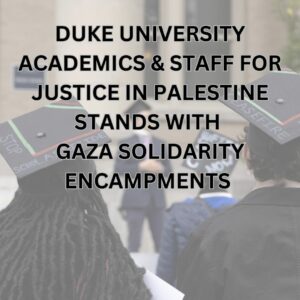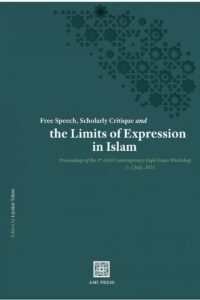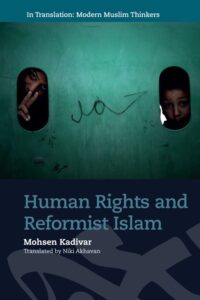
Duke University Academics and Staff for Justice in Palestine Stands with Gaza Solidarity Encampments
We insist that universities and colleges allow all community members including students to freely express their ideas and opinions rather than actively repress them; demilitarize our campuses and refrain from militarizing and policing them further; outline a policy for the future protection of speech, including and especially dissent; take seriously campus demands that universities and colleges divest from companies supporting the military-industrial complex and Israeli state violence, genocide, apartheid, and occupation; and
take seriously campus demands that universities and colleges boycott Israeli institutions through the BDS campaign.



